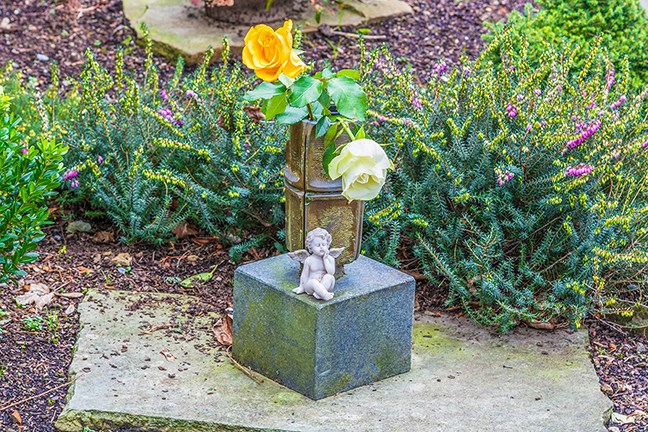Pam Wright
When it comes to the disposal of their earthly remains, North Americans are increasingly going green.
That’s the word from Allan McKeown — a local celebrant who has officiated at more than 450 funerals in the last 12 years.
In a recent talk to the Sarnia-Lambton Golden K Kiwanis club, McKeown outlined emerging death-care options that are becoming popular with the environmentally friendly.
While slow to catch on in Canada, natural or “green” burials, have taken off in Europe and a move is afoot to make them available in every state.
The practice is more in tune with the “ashes to ashes, dust to dust” teaching of the Bible, McKeown explained, as it eschews anything that interferes with nature’s progress.
In green burial, no embalming fluid is used, McKeown said. The dead are shrouded in natural fabric and if a casket is used at all, it’s biodegradable.
No concrete or steel vaults are constructed.
When bodies are placed in the ground in green burial, McKeown said they’re left to return to the earth. Trees are sometimes planted but no headstones are allowed.
“We emulate nature because nature is really good at death,” McKeown told the gathering.
No Canadian statistics are available, but in the U.S., McKeown said 20 million litres of embalming fluid goes into the ground each year, along with vast amounts of steel and wood.
Another emerging option — currently available only in Ontario in Smith Falls — is alkaline hydrolysis. McKeown likens the water cremation method to a “warm jacuzzi” — liquefying the body, leaving only bones.
Ideally, McKeown said he would chose green burial but it’s not available in Sarnia-Lambton. Instead, he has chosen cremation — a method he can’t fully endorse because of heavy carbon footprint.
The 20th century has seen massive changes in how society deals with its dead. McKeown says families were primarily responsible for the process but this became the responsibility of funeral homes by mid-century.
Preplanning your funeral is a way to lessen the pain for your loved ones, McKeown says, as they don’t have to make emotionally charged grief-stricken decisions.
Some of the larger North America funeral companies are shareholder driven, however McKeown says the majority of local homes are family owned and operated.
When it comes to dying, McKeown likes to quote Woody Allen.
“It’s not that I’m afraid of death, I just don’t want to be there when it happens,” the filmmaker says.
“Everyone needs to have the conversation,” McKeown noted. “We’re living in a death denial society, but we’re all going to sail into the sunset.”
For the most part, McKeown said he doesn’t fear death itself, but he is afraid he may not have a “good death.”
He doesn’t want to suffer unnecessarily from a debilitating terminal condition, which has led him to be an advocate of Canadians having end-of-life choices.
“I believe it’s a basic human right to die with dignity,” he said.
